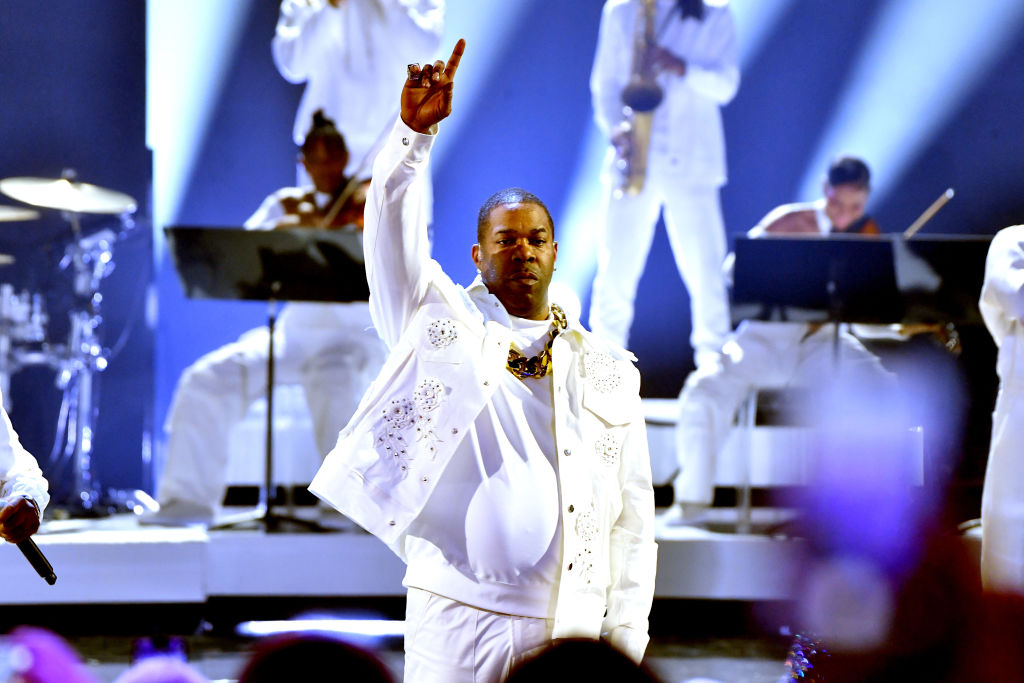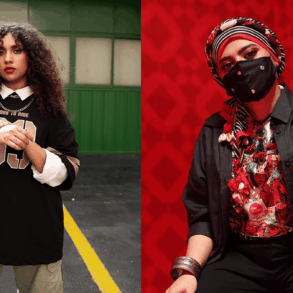If you were waiting for another Busta Rhymes album to drop, then you’re in luck. That’s if you don’t mind him sharing the songspace with a dozen other artists, at least. The American rapper, who rose to fame through the 1990s, has just released his 11th studio album. Here’s our Blockbusta review…
After 12 Grammy nominations and countless chart hits, he has secured a place as one of the biggest names in US hip-hop. Now, aged 51, Busta Rhymes aka Trevor Smith, has a brand new, hour-long record, comprising a whopping 19 songs. However, a staggering 15 of these brand-new tracks are collaborations, making this seem more like a shared album rather than Smiths’ alone.
Sampling the greatness of Stevie Wonder and Michael Jackson, Blockbusta features the inspiration, words and sound of some of Busta’s contemporaries, as well as some familiar names in the UK charts.
However, despite the strong collaborations, it does seem to be the defining characteristic of the album that there are only four tracks with just Busta on his own. This mix of sounds and tones seems almost clumsy, with the chosen guests not always complimenting Smith or each other, repeatedly disrupting the flow of the album, and preventing its potential overall coherence.
Busta Rhymes clearly attempts to play around with genres here, with rare solo track, ‘Tings’ containing some mediocre afro-beats and ‘Slide’ featuring a refreshing jazz piano solo behind a typically punchy hip-hop beat.
Busta appears to feel more comfortable in the hip-hop territory, making this track one of the record’s stronger pieces, however it would have been interesting to see some more experimentation with genre on the record, particularly given Smith’s lengthy experience and confident position in the music industry.

What’s more, these attempts to veer away from the thing for which he is known best and has secured his success don’t seem to pay off overall. The brief entry into drum and bass, afrobeats and disco seem half-hearted, and if it weren’t for the injection of fresh and current artists such as BIA and DaBaby throughout, this record would sadly feel like a poor attempt by Busta at trying to get back into the charts by re-hashing his old style.
Although the collaborations are in excess, these tracks provide some of the album’s highlights. For instance, using strong female voices on Blockbusta adds value overall. The husky, sensual voice of BIA, contrasting with Smith’s recognisable tone, makes ‘Beach Ball’ an immediate hit. Coi Leray’s engaging voice in ‘Luxury Life’, combined with the 90s hip-hop-inspired backing, makes for a decent collaboration.
Equally, ‘Legend’ features the gentle singing voice of Morray, which compliments Busta’s rap verses, making the track stand out as a distinct high-point of the album, almost to the point where it seems out of place alongside the shouty, aggressive and punchy raps of Young Thug and Quavo. London rapper Giggs is a welcome guest on the album, with his whispery voice contrasting nicely with the trappy feel of ‘The Hive’ and helping to tee up Busta’s verse in a clean and slick way.
Blockbusta definitely improves towards the end, culminating with two thought-provoking and nuanced tracks, firstly with the penultimate track, ‘Legacy’. Towards the end of the song, Busta brings in a more candid, spoken segment as he says: “It’s crazy how I used to run in the studio to make these songs to feed my children. Now I’m making these songs with my children,” before going on to thank his kids, naming them as the collaborators on the song, and other children in his family.
This is a reflective moment for the rapper – now decades away from his hay-day – it appears his priorities and the things he values have evolved, which is portrayed through his fresh new music.
This would seem like a fitting end to the album, but he closes with another collaboration with a contemporary of his, Big Tigger. ‘If You Don’t Know Now You Know Part 2’ is one of the most compelling tracks on the album, largely for its format.
Performed almost as an interview, with Big Tigger asking questions such as, “I gotta ask, how dope was it to be on tour with Wu-Tang?” and mentioning the album’s release in the 50th anniversary year of hip-hop before asking Smith about his legacy. This theme emerges as a prominent one towards the end of the album, but Busta does not let listeners forget that he was one of the key players in the genre: “Bust, you’re an all-time great.”
An all-time great for sure, but is it now time for Busta to bask in his legacy and leave the big 19-song-albums to newer artists? Sadly, Blockbusta shows that he can no longer maintain quality and engagement throughout an entire album, as most of the tracks are weak and lacking in unique value, with highlights mainly being provided by guest artists.
Keep up to date with the best in UK music by following us on Instagram: @whynowworld and on Twitter/X: @whynowworld
This post was originally published on this site be sure to check out more of their content.






